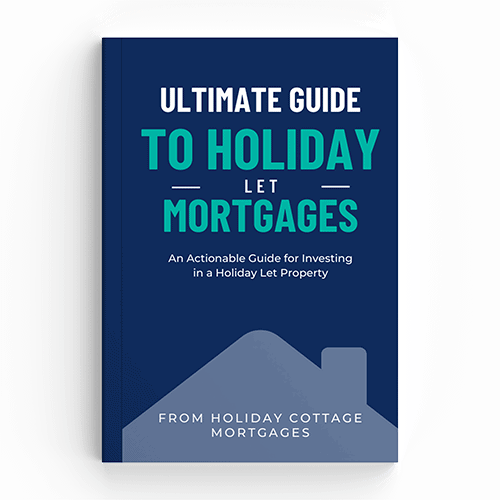A consumer holiday let mortgage is a regulated mortgage contract that provides additional financial protection from the Financial Conduct Authority (FCA), that goes above and beyond what you would expect from a regular holiday let mortgage.
These consumer-type holiday let mortgages are often underwritten on a second home or residential style “affordability” basis where the lender will scrutinise your income and outgoings and ignore the usual rental income approach, meaning that they can be much harder to obtain.
In this article we will look into how this idea came about and what it means for you.
Where did all this come from?
In the buy-to-let market, there’s a concept that’s known as ‘consumer buy to let’, which is where people sometimes find themselves in a situation where they become an ‘accidental landlord’.
This essentially means that they didn’t originally have the intent to rent out their property, they have been forced into it, somehow. This situation could arise through the inheritance of property; a change in living situation such as moving in with a spouse, where the couple decides to rent out the remaining empty house; or a house move due to work.
The FCA decided some time ago that these accidental landlords need extra protection and so when such a ‘consumer’ situation arises, the mortgage type switches from being an unregulated contract to a regulated contract. This provides the applicant with more support, such as access to the Financial Ombudsmen Service.
The reasoning behind this is that, if someone becomes an accidental landlord and rents their property without any experience or good business acumen, they are more susceptible to difficulties later down the road. It’s therefore unsurprising that there are strict lending criteria when it comes to consumer buy to let mortgages.
Holiday let properties are not buy-to-let properties. They are very different business models and are treated differently by HMRC. However, some lenders feel that they are sufficiently close in nature that the ‘consumer’ concept should also apply to them too.
How do I know if my holiday let mortgage is a ‘consumer’ type?
If you’re buying a new property that’s intended for holiday letting, you should be fine with your mortgage application because it’s unlikely that you will have ever lived in it before renting it out to guests. The difficulties generally arise if you’re remortgaging your existing property.
If you’re remortgaging your property for holiday letting and have any history of using it as your primary residence – even if that was 20 years ago – and you don’t own any other rental properties, some mortgage lenders will direct you towards a consumer holiday let mortgage.
Therefore, if you have lived in it before, you should check with your mortgage broker or lender upfront to see if they deem your mortgage as a consumer-type situation.
The impact of being classified as a consumer holiday let mortgage
We find that most mortgage lenders do not acknowledge the consumer buy to let rules for holiday let properties. At the time of writing, only about 15% of holiday let mortgage lenders recognise the consumer aspect of holiday lets. The rest simply ignore the fact that you used to live in the property and issue a standard unregulated mortgage contract with normal holiday let underwriting.
If your lender does acknowledge the consumer point, then it generally means one of two things:
- They don’t offer regulated holiday let mortgages and so they will decline your application.
- They do offer regulated holiday let mortgages and their approach to underwriting is more aligned to that of the residential process and will be based on your income and expenditure in order to establish your affordability. This can have a significant impact on your ability to obtain a holiday let mortgage.
Summary
If you think you may have become an accidental landlord or want to rent out your property but used to live in it, your holiday let mortgage application won’t be met with a straightforward ‘yes’ or ‘no’. It’s a grey area and the best way to avoid wasting time is to disclose this information upfront. This could be to a lender or ideally a mortgage broker, who can go directly to those lenders most likely to approve your mortgage, to see what your chances of getting a holiday let mortgage are.
Doing this upfront can save you time and money and avoid having your application cancelled or underwritten in a different way downstream. This is especially important if you are close to the end of your initial period, and you are about to move onto the lender’s standard variable rate.
Any more questions?
If you’re unsure about whether you qualify for a consumer buy to let mortgage, get in touch here and we can clear things up for you.

Get your copy today!
Free eBook: The Ultimate Guide to Holiday Let Mortgages
How much can you borrow?
Use our free mortgage calculator created by the UK's leading holiday let mortgage specialists, and find out how much you can borrow today!
FCA disclaimer
The information contained in this article is accurate at the time of writing, based on our research. Rules, criteria and regulations change all the time and so please speak to one of our Consultants to confirm the most accurate up to date information. Nothing in this article constitutes financial advice. You understand that by clicking any external links on this page that you will be leaving the website of Holiday Cottage Mortgages and we cannot be held responsible for the content of this external website. Please always consult your accountant or solicitor for all financial, taxation or legal matters.